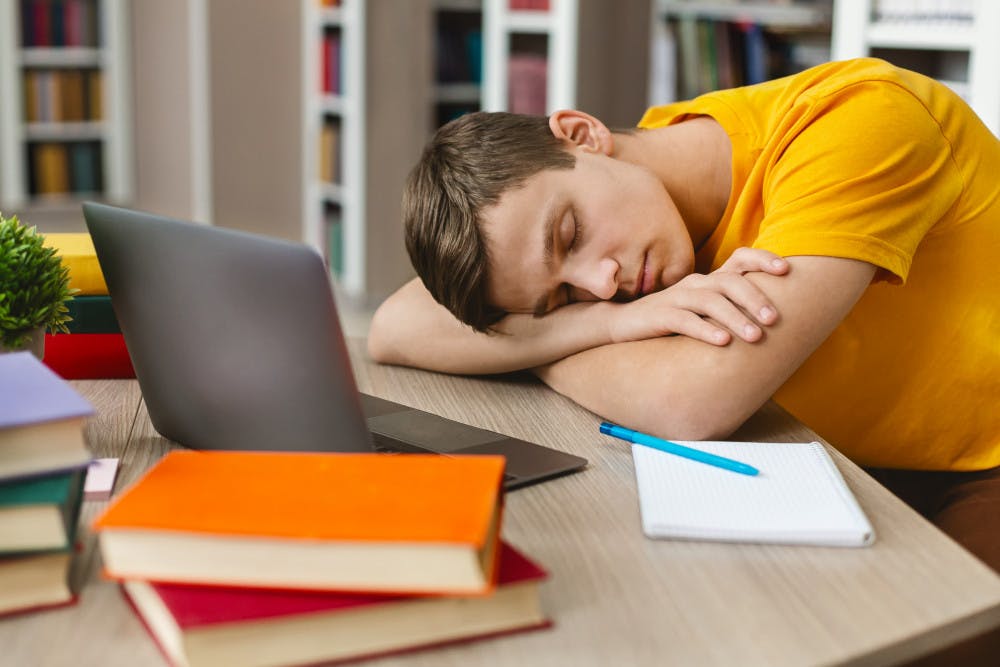By Anna Kellaher
Columnist
Trying to balance academics, extracurricular activities and a healthy social life as a college student can leave very little time for sleep.
People between the ages of 18 and 24 are supposed to get at least seven hours of sleep each night. Falling slightly short of this quota once in a while is not particularly harmful, but constantly getting inadequate sleep can put you into a state of sleep deprivation, according to the American Sleep Association.
Sleep deprivation can cause clumsiness, weight fluctuations, daytime sleepiness, moodiness and a reduced attention span. The ASA warns that maintaining a sleep-deprived state for a long period of time can increase your risk of developing more serious health issues, including Type 2 diabetes, a weakened immune system and depression. If you feel yourself dozing off during the day, try using some of these tips to catch some more shut eye.
Wake up and go to bed at similar times each day, even on the weekends. Pick times that are realistic for you and your schedule. Put your phone and computer away during bedtime, since the bright light from the screen disrupts the normal process in your brain that helps you fall asleep, and it can be hard to get rest with a lifetime’s worth of potential Netflix binges at your fingertips.
Exercise regularly. Using more energy throughout the day will make you more ready to fall asleep at night. But be careful not to exercise soon before you plan to go to sleep, because this can keep you awake. Try to exercise in the morning — a lap around the loop as the sun rises can be a refreshing start to your day.
Avoid smoking. On top of all of the damaging effects to your lungs, withdrawal from nicotine in cigarettes and vapes can wake you up throughout the night.







